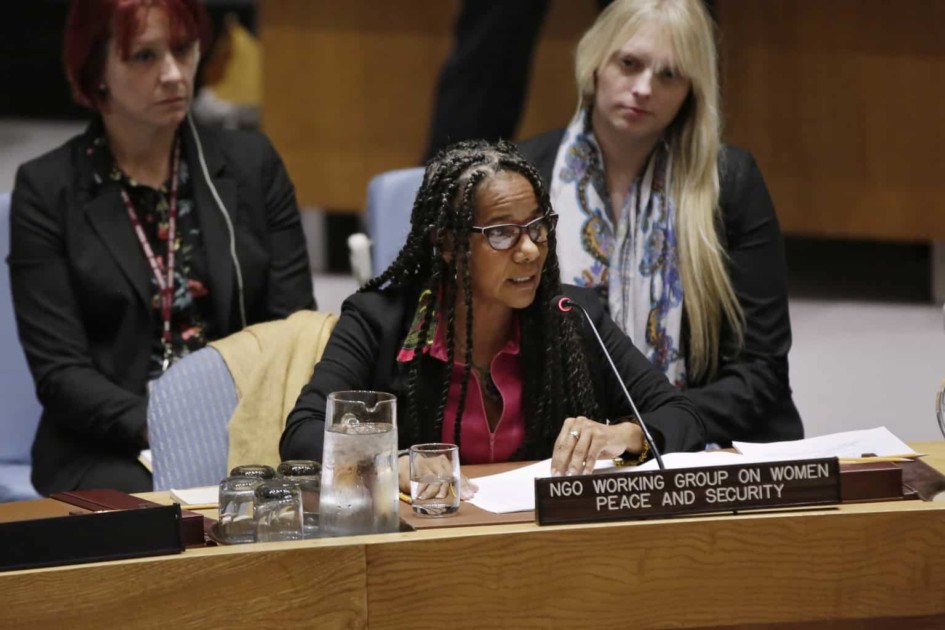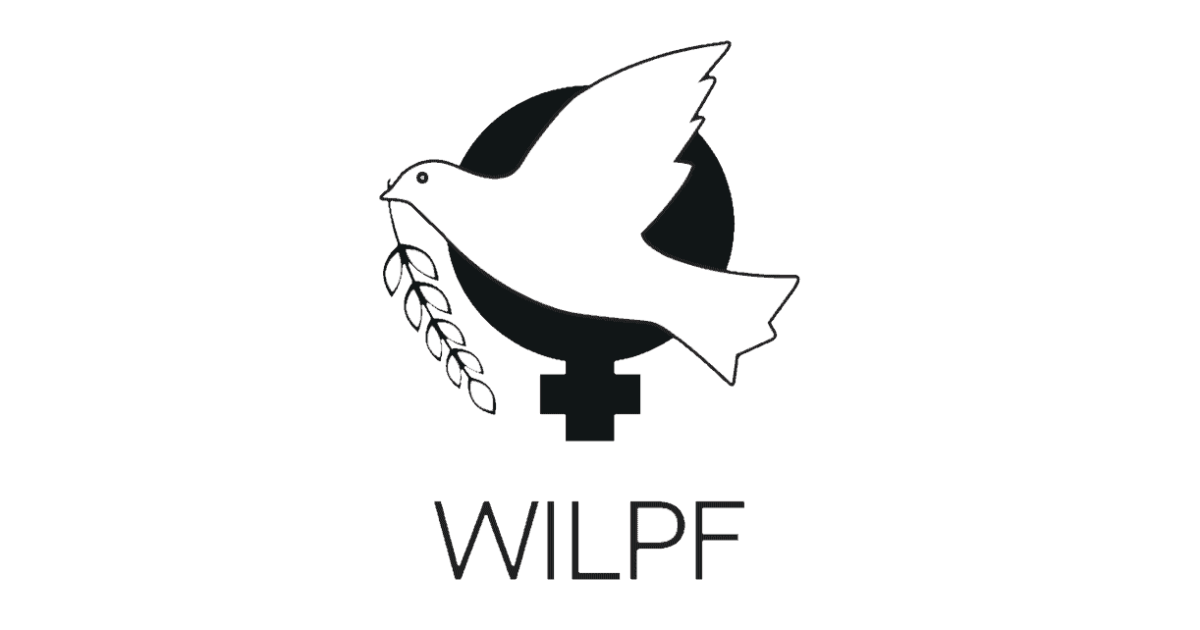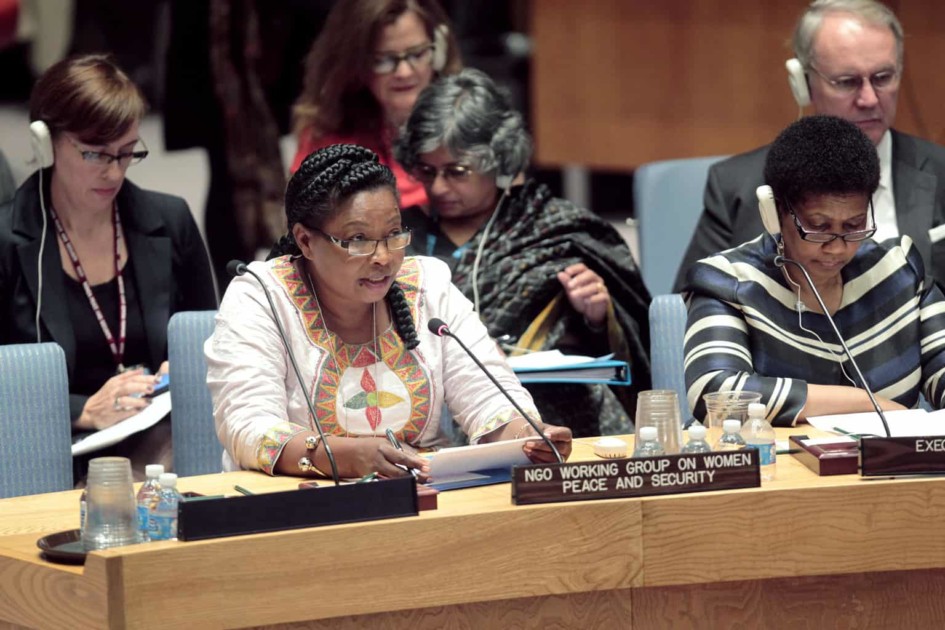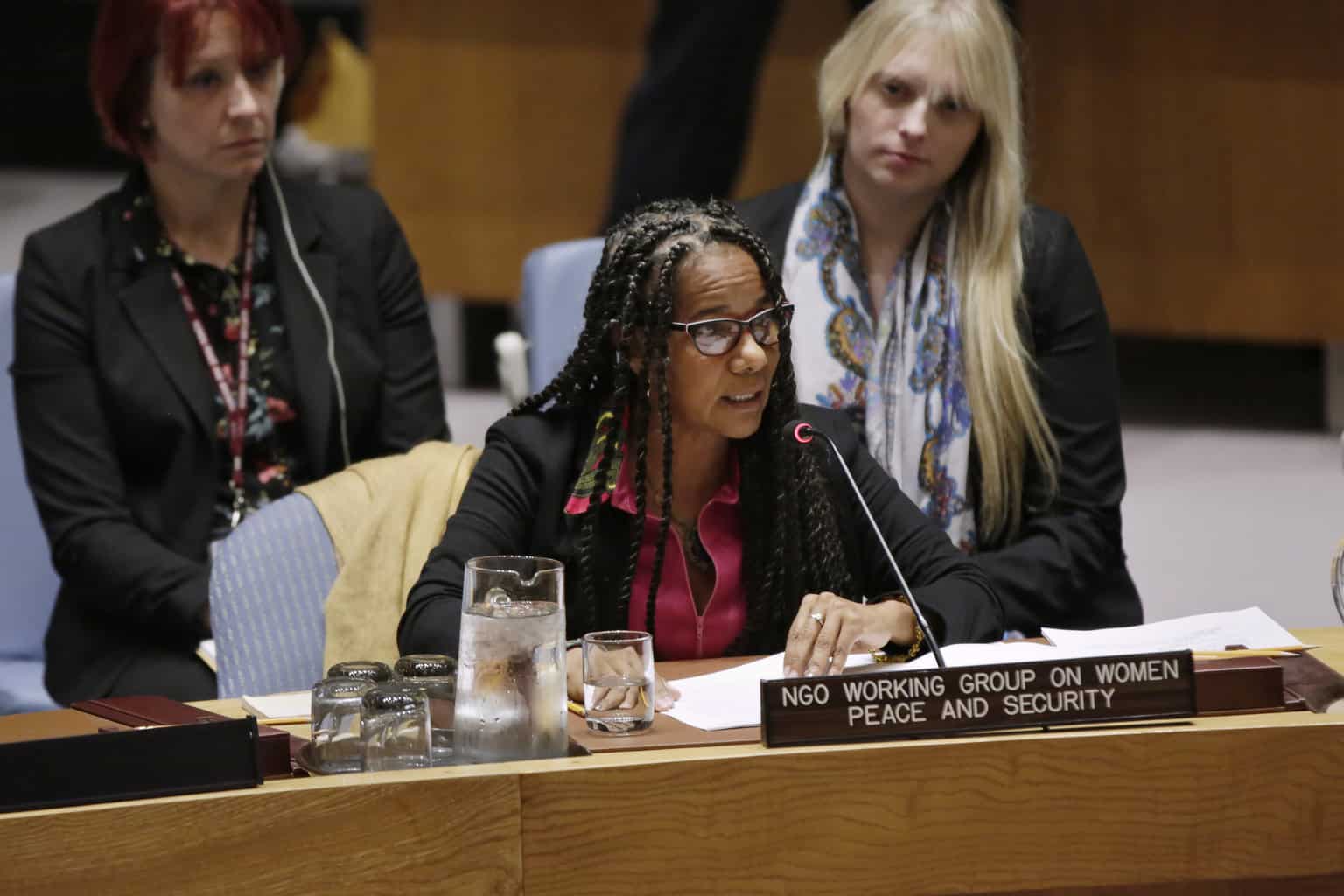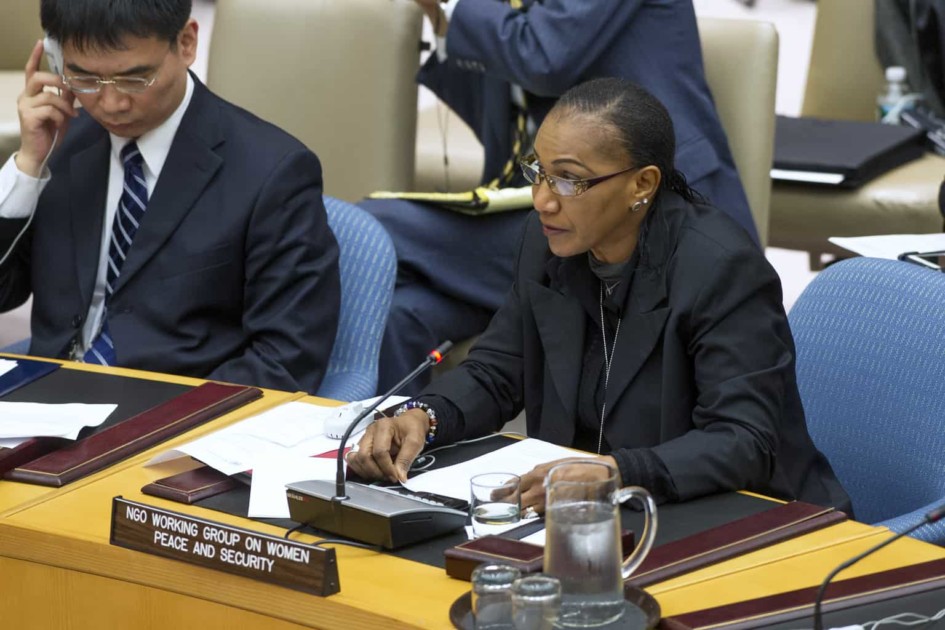Conflict Prevention & Resolution
Lasting peace requires comprehensive conflict prevention, which ensures all actors have the capacity to participate in and access formal processes that address root drivers and causes of conflict and provide cooperation across political and/or other sectarian boundaries. The Security Council has, has discussed conflict prevention and resolution, including mediation, calling for gender experts in mediation teams in Security Council Resolution 2122 (2013) and issues of sexual and gender-based violence in mediation efforts in Security Council Resolution 2106 (2013). Security Council Resolution 2242 (2015) further reaffirmed that women and girls’ empowerment and gender equality are critical to conflict prevention.
The NGO Working Group works advocates for gender-sensitive approaches to both short and long-term conflict prevention efforts with a particular emphasis on addressing the root causes of conflict and systematic and structural drivers of gender inequality, gender discrimination and gender violence. Effective conflict prevention demands recognition of gendered dynamics and impacts of armed conflict, with policy analysis and monitoring that clearly identifies the masculine and feminine social roles that contribute to violence and subordination. In mainstreaming gender across conflict prevention, the Security Council is requested to support an increase in women’s participation in all efforts to prevent and resolve conflict; including by supporting women’s civil society organizations’ participation in the planning, design and implementation of preventative policies and programs for violence.
Conflict Prevention & Resolution
Lasting peace requires comprehensive conflict prevention, which ensures all actors have the capacity to participate in and access formal processes that address root drivers and causes of conflict and provide cooperation across political and/or other sectarian boundaries. The Security Council has discussed conflict prevention and resolution, including mediation- calling for gender experts in mediation teams in Security Council Resolution 2122 (2013), and issues of sexual and gender-based violence in mediation efforts in Security Council Resolution 2106 (2013). Security Council Resolution 2242 (2015) further reaffirmed that women and girls’ empowerment and gender equality are critical to conflict prevention.
The NGO Working Group works advocates for gender-sensitive approaches to both short and long-term conflict prevention efforts, with a particular emphasis on addressing the root causes of conflict and the systematic and structural drivers of gender inequality, gender discrimination and gender violence. Effective conflict prevention demands recognition of gendered dynamics and impacts of armed conflict, with policy analysis and monitoring that clearly identifies the masculine and feminine social roles contributing to violence and subordination. In mainstreaming gender across conflict prevention, the Security Council is requested to support an increase in women’s participation in all efforts to prevent and resolve conflict; including by supporting women’s civil society organizations’ participation in the planning, design and implementation of preventative policies and programs for violence.
Current and Past Recommendations to the UN Security Council (Monthly Action Points)
The Council is expected to discuss the Secretary-General’s report on “Maintenance of international peace and security: Optimizing the use of preventive diplomacy tools: Prospects and challenges in Africa”, as requested in S/PRST/2010/1. Given the focus in all Women, Peace and Security resolutions on the importance of women’s role in the prevention of conflict, and the reference to this role in S/PRST/2010/1, the report should provide concrete recommendations on how the Security Council can overcome the political obstacles to effective prevention measures, and how women will be supported in these processes. This should be a central topic of discussion in the expected high-level discussion on preventive diplomacy.
Relevant Resources
